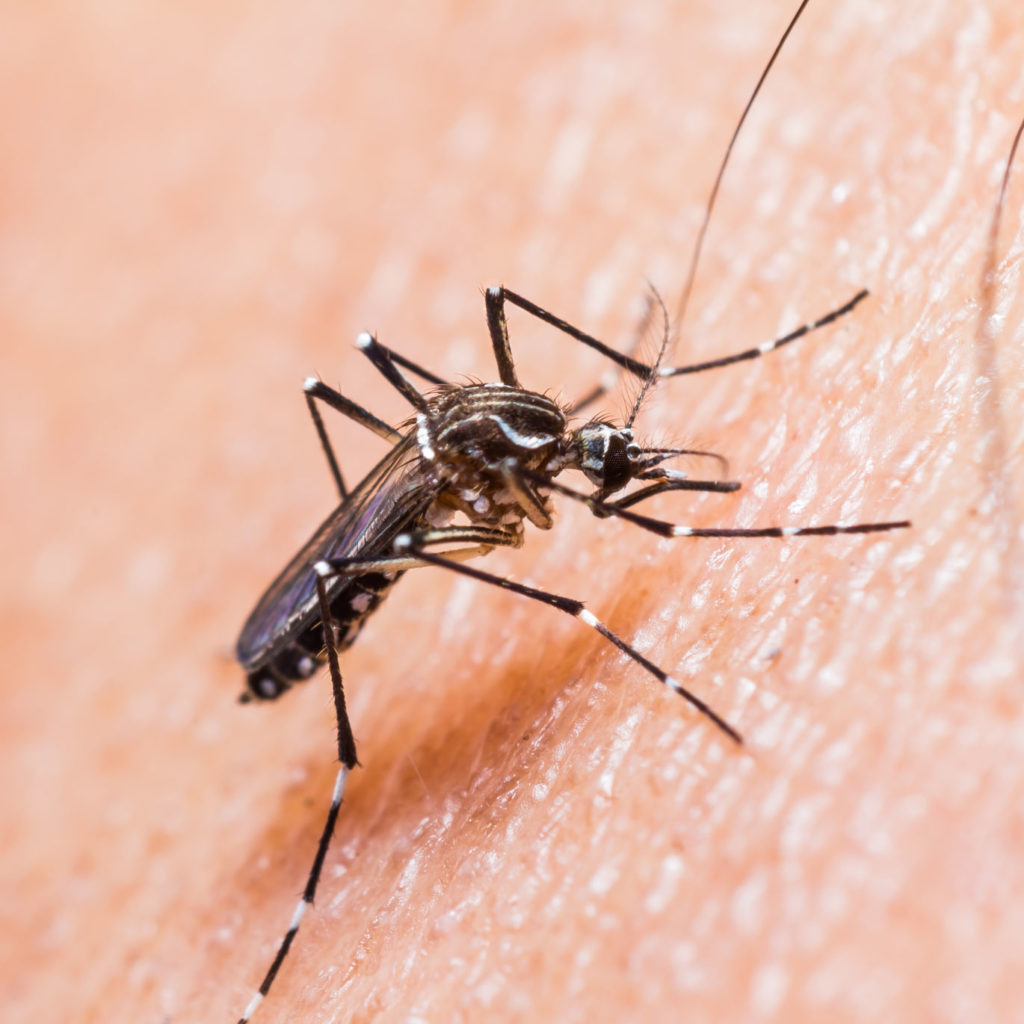
Zika is in Florida ~ What Can We Do?
Posted August 10th, 2016
Zika is in Florida ~ Let’s protect those who can’t protect themselves!
Zika is explosively spreading in the Americas. It is being linked to birth defects and brain damage, and is spread mainly through mosquitoes…mosquitoes bite someone who has Zika and then transmit the virus to the next person they bite. Travel warnings have been issued for pregnant women, but we all need to take precautions to prevent further spread and protect those around us. Here are some answers to the common questions asked about this virus:
Are we at risk for Zika virus in the US?
Viruses such as Zika, Denque Fever, Chikungunya, and West Nile Virus are all transmitted by the Aedes mosquito; this mosquito is present in every country in North, Central, and South America except for two: Canada and continental Chile. Experts from the CDC say that the US is unlikely to see similar mass outbreaks to the ones we are seeing in Latin America and the Caribbean; however, they warn that Zika can be transmitted by way of traveling to these countries and from people (via mosquitoes and sexual intercourse) who have traveled to these countries. There have been at least 15 reported cases of locally (Miami, FL) transmitted Zika. It’s important to take measures to protect yourself from mosquito bites ~ it will ensure your safety and the safety of others.
How do I know if I have Zika virus?
Symptoms include fever, rash, joint pain, and redness in the eyes, but only 1 in 5 people who have the disease will have any symptoms. Compounding the problem is that it gets mistaken for the flu because the symptoms are similar. This is why it is especially important to take precautionary measures. In rare cases, Zika has been tied to Guillain-Barre syndrome, a disorder that can cause paralysis, usually temporarily. The biggest problem with Zika is that it is linked to microcephaly in babies born to mothers affected by the disease. Microcephaly stunts the growth of a baby’s head and can sometimes cause fatal brain damage and miscarriage or stillbirth. It is because of this that we must all be proactive in preventing Zika transmission ~ while harmless to many, it may be fatal for some.
How does Zika compare to other mosquito-borne illnesses?
Zika is transmitted by the same mosquito (Aedes) that transmits dengue fever, chikungunya, and West Nile virus. All of these viruses cause a variety of flu-like symptoms that can last from days to weeks. Most people with these viruses show no symptoms.
How is Zika treated?
There is no treatment for Zika. The disease usually runs its course within a week or so. During this time, the person is a Zika carrier, which means that if they get bit by a mosquito, the mosquito can transmit the virus to someone else…this is how it spreads so rapidly.
What if I’m pregnant or thinking of becoming pregnant?
It is critical that you take preventive measures. Talk to your doctor about Zika. Avoid traveling to countries with Zika warnings (see below). If you must travel to these countries, be sure to take all necessary precautions to avoid mosquito bites. Pregnant women who have traveled to a country with Zika warnings can be tested 2 to 12 weeks after returning. It is important for the male partner to take precautions as well since Zika can be spread through sex, as well as through mosquito bites (a mosquito in the house could bite the male with Zika and then go and bite the pregnant woman and give it to her). Pregnant women with Zika need to have ultrasounds every 3 to 4 weeks to monitor the baby’s growth. Zika is most dangerous in the 1st and 2nd trimester, but can still be dangerous in the 3rd trimester. If either partner have been exposed to Zika, they should wait to get pregnant; experts advise that women wait 2-3 months and men wait 6 months before trying to conceive. Once exposed to the virus, it’s very unlikely that you will get the virus again; antibodies build up against the virus, helping to prevent future exposure. However, it is best to not get Zika in the first place; the best way to prevent the spread of Zika is to prevent being a carrier of the virus.
Which countries have Zika warnings?
American Samoa, Anguilla, Argentina, Aruba, Barbados, Belize, Bolivia, Bonaire, Brazil, Cape Verde, Colombia, Costa Rica, Cuba, Curacao, Dominica, Dominican Republic, Ecuador, El Salvador, Fiji, French Guiana, Grenada, Guadeloupe, Guatemala, Guyana, Haiti, Honduras, Jamaica, Kosrae, Marshall Islands, Martinique, Mexico, New Caledonia, Nicaragua, Panama, Papua New Guinea, Paraguay, Peru, Puerto Rico, Saba, Saint Barthelemy, Saint Lucia, Saint Martin/Sint Maarten, Samoa, St. Eustatius, St. Vincent and the Grenadines, Suriname, Tonga, Trinidad and Tobago, U.S. Virgin Islands, and Venezuela
What precautions can we take to prevent mosquito bites and the diseases they carry?
- Apply mosquito repellent (see suggestions below).
- Cover skin with tightly woven long-sleeved shirts and pants while outdoors.
- Wear lightly colored clothing ~ they are less likely to see you this way.
- Eliminate sources of standing water by draining any containers, no matter how small.
- Quickly close doors when entering or exiting.
- Be especially careful with bromeliads and other container plants ~ flush them weekly or remove them.
- If you leave windows open, make sure your house has window screens.
- If you plan to travel to affected regions, be especially careful to avoid mosquito bites while traveling and for at least 10 days once you are back (to avoid spreading viruses that you might have picked up on your trip).
What are some natural mosquito repellants?
- Lemon eucalyptus oil is approved by the CDC as an effective mosquito repellent. Recent research shows that a mixture containing at least 32% lemon eucalyptus oil is over 95% effective against mosquitoes for 3 hours! To create your own mixture, combine 1 part lemon eucalyptus oil with 10 parts sunflower oil or witch hazel. If your child is under 3 years of age, talk to their pediatrician.
- Consumer Reports showed that Repel 30 Lemon Eucalyptus Repellent was able to ward off mosquitoes for 7 hours. If your child is under 3 years of age, talk to their pediatrician.
- Fans! If you have access to a fan, you can blow the mosquitoes away. Setting up 1 or 2 high powered fans on the porch does wonders to keep mosquitoes at bay. And a personal fan is always an option as well and is great for strollers, just be sure that it has safety blades if it’s being used around small children.
Facts about the Aedes Aegypti mosquito (the primary Zika mosquito):
- These mosquitoes are specifically adapted to people living in urban environments and generally don’t bite other mammals or birds.
- They are sneaky, approaching from behind to bite ankles and elbows.
- As opposed to other mosquitoes who get blood meal from one host in one bite, these are “sip feeders” sampling a little blood from lots of people in one feeding session.
- They don’t travel very far ~ on average about 1/4 mile. The diseases they carry are mostly spread through transoceanic travel ~ especially if a person is flying from and to a place with aegypti mosquitoes.
- They are “container mosquitoes” ~ they look for containers that fill with water and lay sticky eggs o the walls of the containers. This includes container plants, wheelbarrows, forgotten frisbees…etc, etc. The eggs hatch when the water level rises. (This is why the most common advice is to Get Rid of Standing Water). The eggs look like tiny grains of black rice.
- The eggs can become adult mosquitoes in 7 to 10 days or they can wait months or years to hatch. Once they are submerged in water and the weather is warm enough, they can hatch. So, it’s important to empty any standing water, even in the winter.
- They are day biters…especially around dusk or dawn. They are most active for two hours after sunrise and two hours before sunset. Outdoor lighting encourages nighttime biting.
- Insecticide sprays may be necessary in some situations but the problem is that they are broad spectrum…killing all insects such as bees, butterflies, fireflies, dragonflies – which are themselves kill mosquitoes and their eggs. If you do choose to go with insecticides, it’s recommended to go with “biorational” ones (BIT and methoprene) which kill a narrower range of insects…targeting mosquito larvae in water.
Sources: WebMD, Consumer Reports, and Journal of American Mosquito Control Assoc., Comparative laboratory and field evaluation




